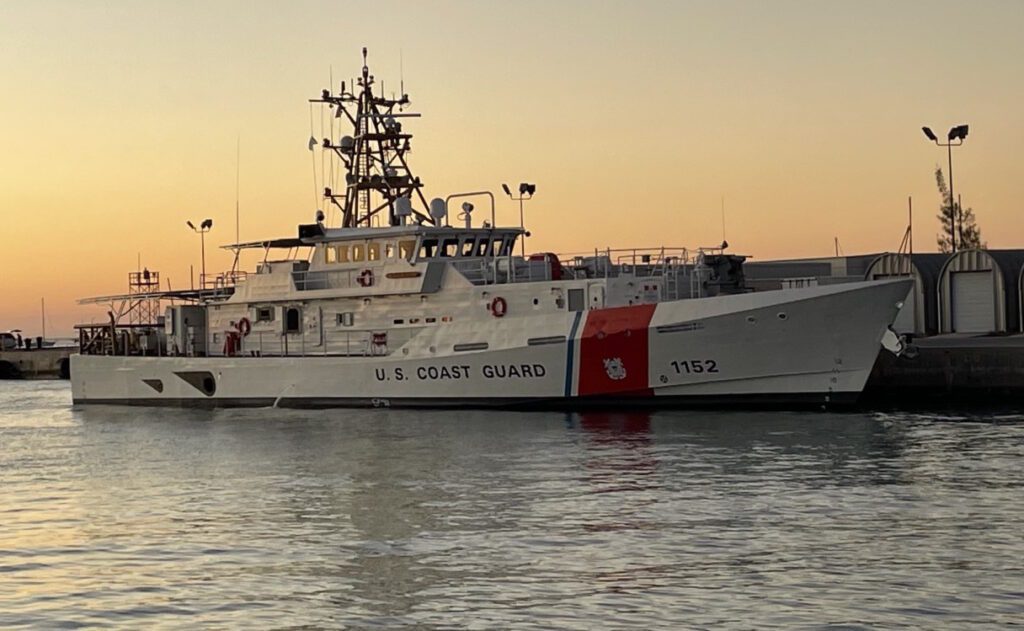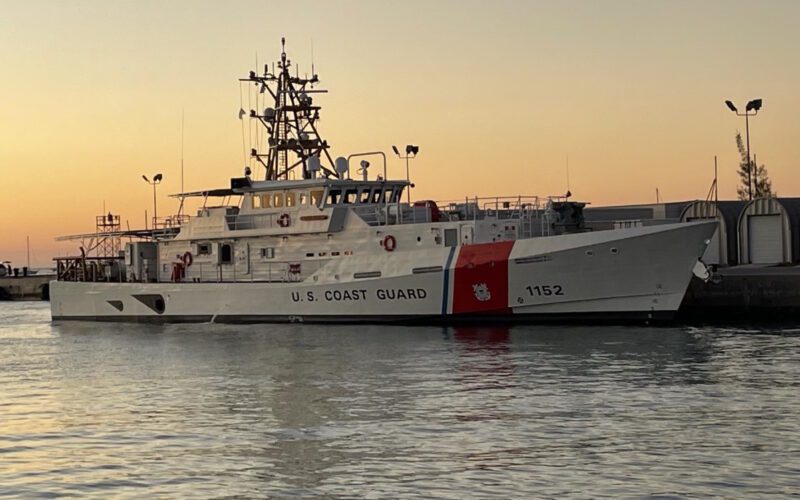(LOCKPORT, La.) – Bollinger Shipyards has delivered USCGC Maurice Jester to the U.S. Coast Guard in Key West, Fla. This is the 178th vessel Bollinger has delivered to the Coast Guard over a 35-year period and the 52nd fast response cutter (FRC) delivered under the current program.
“We’re incredibly proud to deliver another fast response cutter to be home-ported in Boston, the birthplace of the U.S. Coast Guard,” said Bollinger President and CEO Ben Bordelon. “We’re confident that pound for pound, the quality and capabilities of the FRC platform is unmatched, and that this vessel will outperform its mission requirements and expectations in the challenging conditions where it will operate in the North Atlantic. Our unique experience building for the Coast Guard is unparalleled and has shown time and time again that we can successfully deliver the highest quality vessels on a reliable, aggressive production schedule. We look forward to continuing our historic partnership with the U.S. Coast Guard.”

USCGC Maurice Jester will be the third of six FRCs to be home-ported in Sector Boston, which is known as the birthplace of the Coast Guard. The sector is responsible for coastal safety, security and environmental protection from the New Hampshire-Massachusetts border southward to Plymouth, Mass., out to 200 nautical miles offshore.
Each FRC is named for an enlisted Coast Guard hero who distinguished themselves in the line of duty. Maurice Jester enlisted in the Coast Guard as a surfman in 1917, working his way up to chief boatswain’s mate by 1935 while serving on five cutters. Commissioned as a lieutenant and promoted to lieutenant commander, he was the first Coast Guardsman to earn the Navy Cross in World War II, and the first Coast Guard officer to receive the award for a combat action in direct confrontation with enemy forces.
During World War II, Coast Guard cutters battled Nazi submarines in an area off the North Carolina coast termed “Torpedo Junction.” Jester commanded the Coast Guard cutter Icarus in the sinking of a German U-352 off the Outer Banks of North Carolina. This historic event was the second U-boat sinking by U.S. forces and the first U.S. capture of German combatants.
About the fast response cutter
The FRC is an operational “game changer,” according to senior Coast Guard officials. FRCs are consistently being deployed in support of the full range of missions within the Coast Guard and other branches of our armed services. This is due to its performance, expanded operational reach and capabilities, and ability to transform and adapt to the mission.
FRCs have conducted operations as far as the Marshall Islands — a 4,400-nm trip from their home port. Measuring 154 feet, FRCs have a flank speed of 28 knots, C4ISR suite (command, control, communications, computers, intelligence, surveillance and reconnaissance), and stern launch and recovery ramp for a 26-foot, over-the-horizon interceptor cutter boat.
– Bollinger Shipyards

